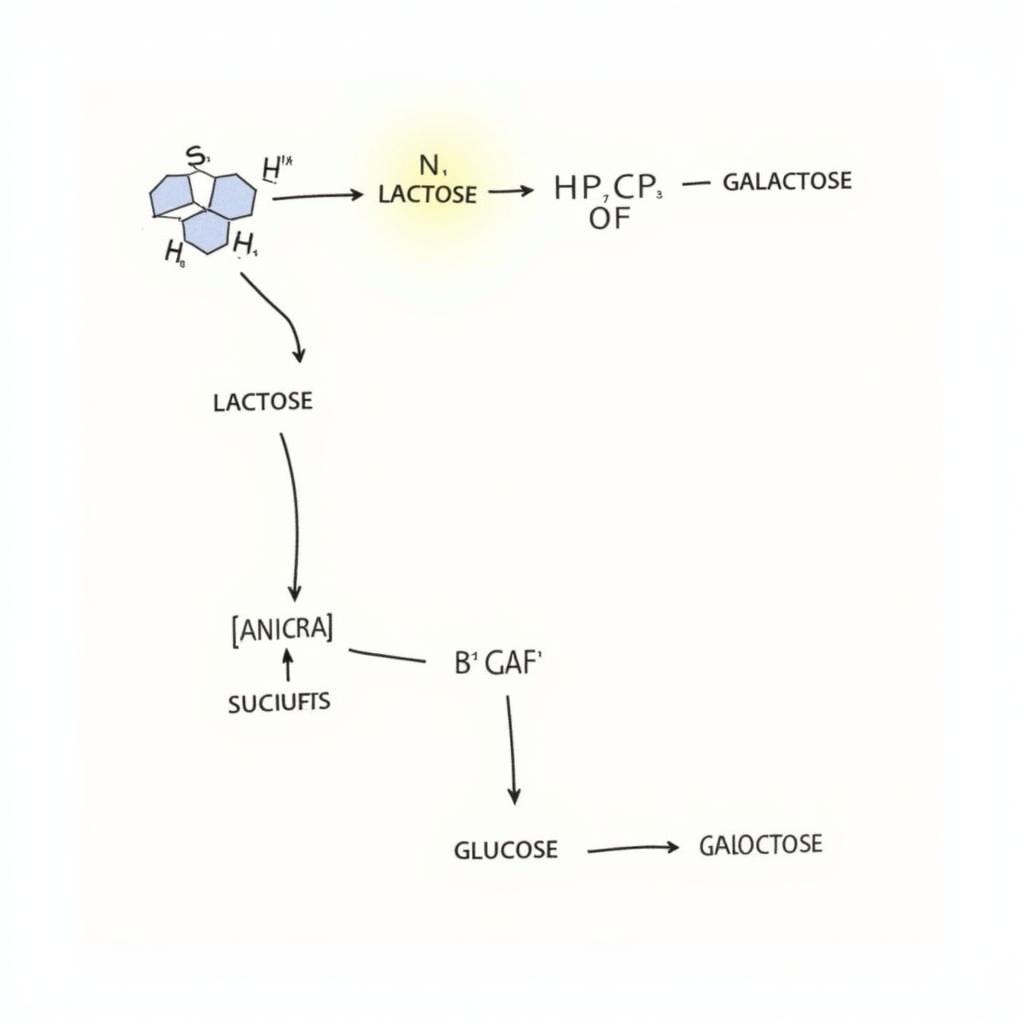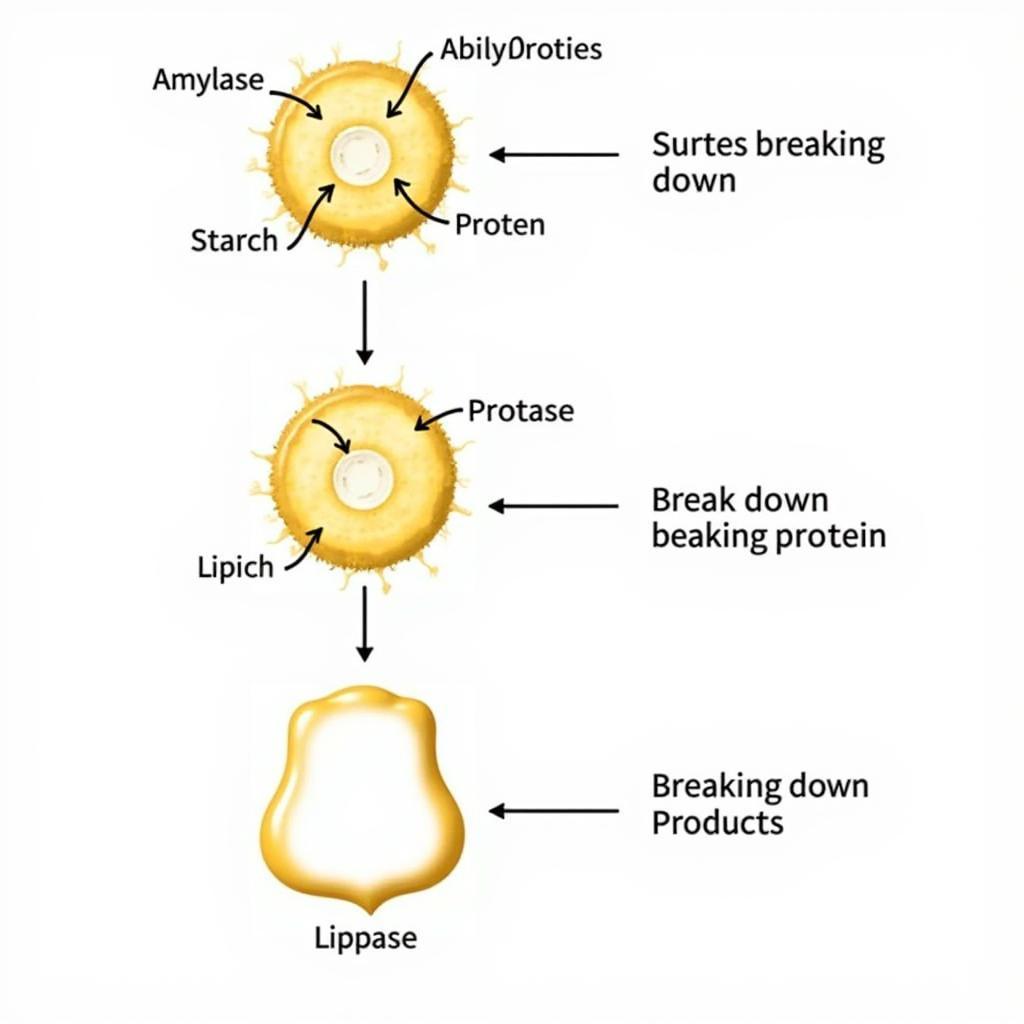The suffix “-ase” is a common sight in scientific literature, particularly in biology and chemistry. But what does “Ase Meaning Suffix” actually signify? This article will delve into the meaning and significance of the “-ase” suffix, exploring its usage and providing examples to solidify your understanding. We’ll also touch upon related terms and common misconceptions surrounding this important biochemical marker. Let’s begin our exploration of this fascinating suffix.
Decoding the “-ase” Suffix: What Does it Mean?
The “-ase” suffix signifies an enzyme. Enzymes are biological catalysts that accelerate chemical reactions within living organisms. Essentially, they are the workhorses of our cells, enabling countless processes necessary for life. The “-ase” suffix provides a convenient way to identify and categorize these crucial molecules. Understanding the suffix –ase is fundamental to grasping the complexities of biological systems.
The Importance of “-ase” in Biology
The use of “-ase” is not merely a naming convention; it’s a powerful tool for scientists. It immediately communicates the function of a molecule. For example, when you encounter a word like “lactase,” the “-ase” tells you it’s an enzyme. The “lact-” part hints at its specific function, which, in this case, is breaking down lactose, the sugar found in milk. This consistent naming system simplifies communication and facilitates research.
 Lactase Enzyme Breaking Down Lactose
Lactase Enzyme Breaking Down Lactose
Common Examples of “-ase” Suffix Usage
Numerous enzymes utilize the “-ase” suffix. Here are a few common examples:
- Amylase: Breaks down starch into simpler sugars. Think of how your saliva starts digesting bread before you even swallow!
- Protease: Breaks down proteins into amino acids. This is crucial for digestion and various cellular processes.
- Lipase: Breaks down lipids (fats) into fatty acids and glycerol. Important for energy production and nutrient absorption.
- DNA polymerase: Involved in DNA replication, essential for cell division and growth.
 Common Enzymes with "-ase" Suffix: Amylase, Protease, Lipase
Common Enzymes with "-ase" Suffix: Amylase, Protease, Lipase
Knowing that these molecules end in “-ase” immediately classifies them as enzymes, giving valuable insight into their biological roles.
“ase” Meaning Suffix: Common Misconceptions
One common misconception is that all biological catalysts end in “-ase.” While this is generally true for enzymes, some exceptions exist, like ribozymes (catalytic RNA molecules). Another misunderstanding is that the “-ase” suffix indicates the specific reaction an enzyme catalyzes. While the prefix often gives a clue, the full name is needed for precise identification. It’s crucial to be aware of these nuances when studying biochemistry.
5 Letter Words Ending in “ase”
The search query “5 letter word ending with ase” is a common way people try to identify specific enzymes. While helpful, it’s essential to understand that many enzymes have longer names. 5 letter word ending with ase can provide some starting points, but deeper research is typically required.
Delving Deeper into Enzyme Function
Enzyme function is intricately linked to their structure. Enzymes possess a specific region called the active site where substrates (the molecules they act upon) bind. This interaction triggers the chemical reaction, resulting in the formation of products. Understanding the ase biology def is vital for comprehending the intricate workings of biological systems.
Dr. Anya Sharma, a renowned biochemist, emphasizes, “The “-ase” suffix is a powerful tool in the biologist’s lexicon. It allows us to quickly identify and categorize these essential molecules, facilitating our understanding of the intricate web of life.” Professor Ben Carter, another leading expert, adds, “While the suffix “-ase” is a strong indicator of enzymatic activity, understanding the full name and specific function of each enzyme is paramount for a comprehensive understanding.”
Conclusion: The Significance of “-ase”
In conclusion, the “ase meaning suffix” identifies an enzyme, a crucial biological catalyst. Understanding this suffix is fundamental to navigating the world of biochemistry. While 5 letter words ending in ases can be a starting point, a comprehensive understanding requires further exploration. This knowledge unlocks insights into the complex mechanisms that drive life itself.
FAQ
-
What does the suffix “-ase” mean?
It indicates an enzyme. -
Are all biological catalysts enzymes ending in “-ase”?
No, there are exceptions like ribozymes. -
Does “-ase” specify the exact reaction an enzyme catalyzes?
No, it only hints at the function. The full name is needed for specifics. -
Why is the “-ase” suffix important in biology?
It simplifies the identification and categorization of enzymes. -
What are some common examples of words ending in “-ase”?
Amylase, protease, lipase, and DNA polymerase. -
Where can I find more information on enzymes?
Numerous resources are available online and in scientific literature. -
How can I differentiate between different types of enzymes?
Focus on the prefix of the enzyme name and its associated function.
Need assistance? Contact us at Phone: 0369020373, Email: aseanmediadirectory@gmail.com, or visit our office at Thôn Ngọc Liễn, Hiệp Hòa, Bắc Giang, Vietnam. Our customer support team is available 24/7.

